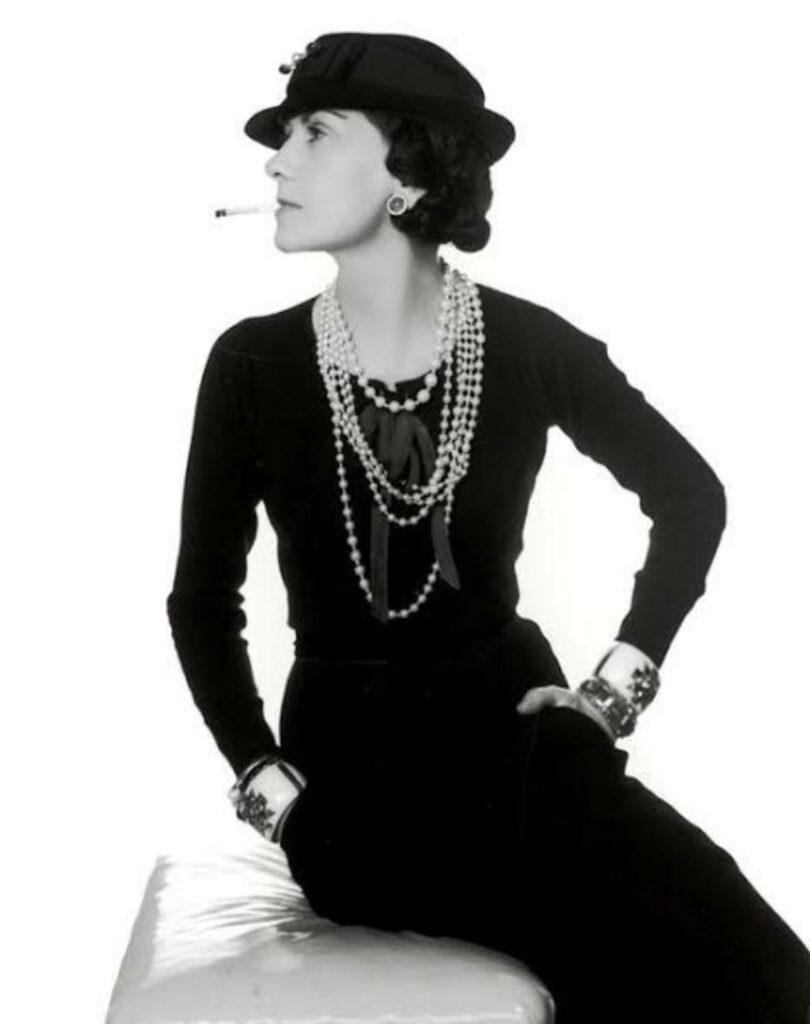
Setting: It’s still the early 1960s in Coco Chanel’s French country home, now deep into dinner. The candles burn low, and the conversation grows bolder. Che Guevara, cigar still in hand, leans forward, intrigued by the complexity of his hostess. Chanel, as always, is impeccably poised.
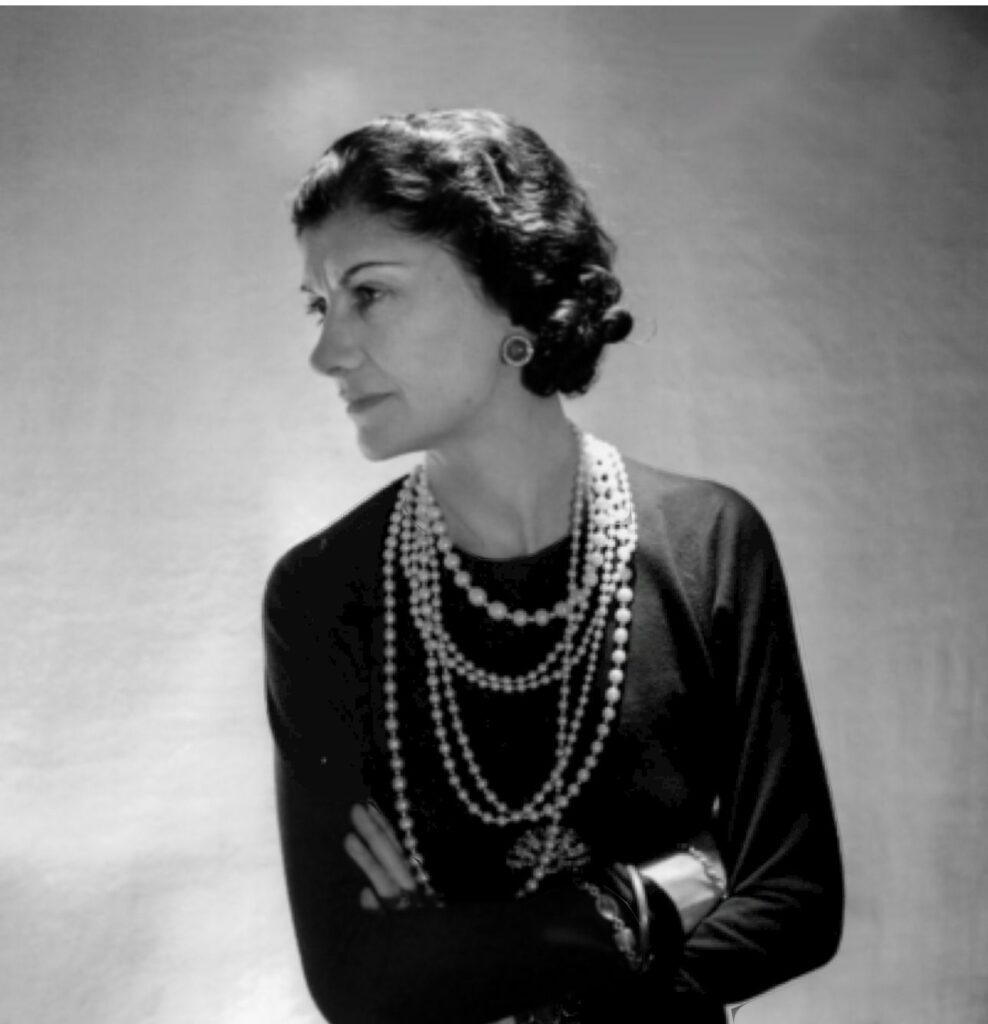
Che Guevara: (studying her, with a hint of curiosity) You’ve built an empire, Coco. The little black dress, Chanel No. 5—it’s more than fashion. It’s like you’ve turned simplicity into power. But tell me, with all that power, how did you clash with someone like Dior?
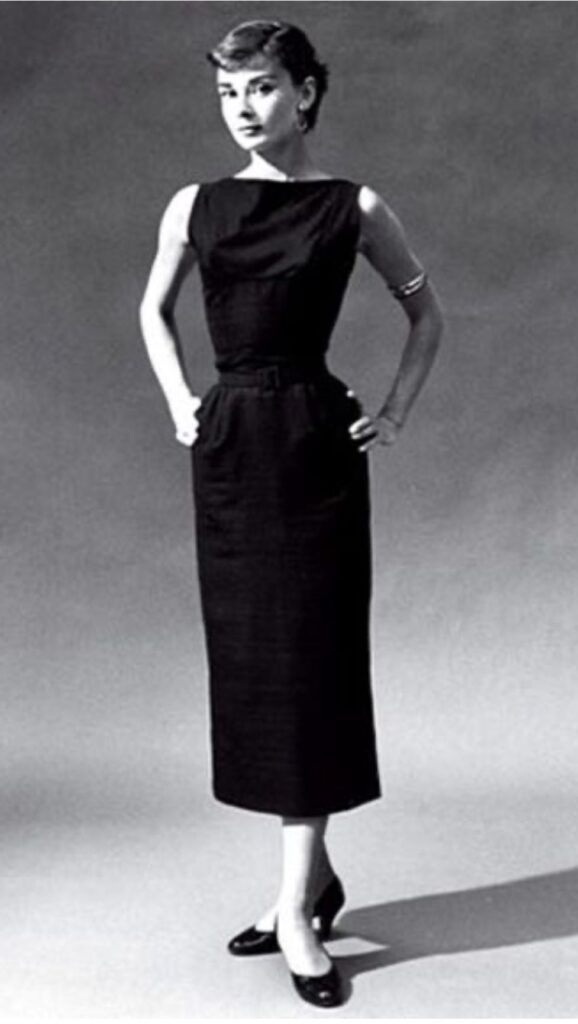
Coco Chanel: (smirking, swirling her wine) Ah, Dior. The man who dressed women like overstuffed cakes. (she rolls her eyes) His “New Look” was a step backward—cinched waists, full skirts… It was everything I worked against. I wanted women to be free, to move, to breathe. Dior wanted them back in cages.
Che Guevara: (laughs) Sounds like a battlefield of fabric. But that little black dress of yours… It’s a weapon in its own right, isn’t it?
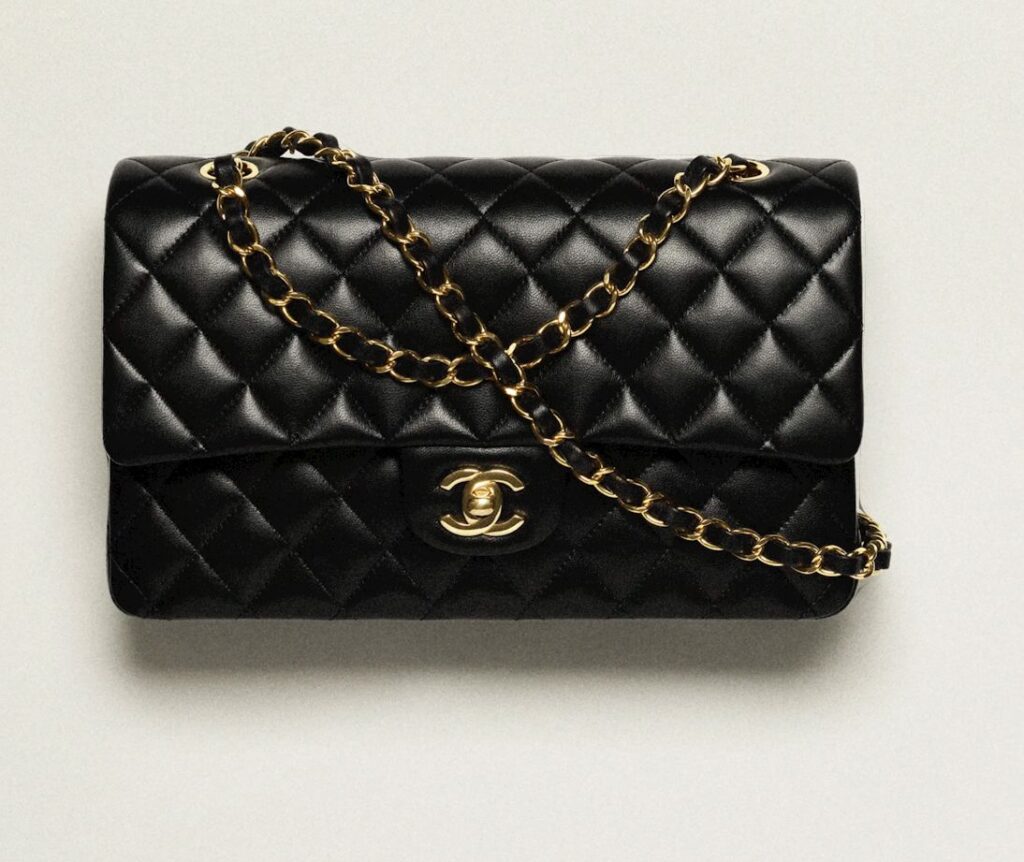
Coco Chanel: (proudly) Indeed. The little black dress is freedom, Che. It’s simplicity, elegance, and power. Every woman, no matter her class, can wear it and feel she belongs anywhere. That’s the revolution I fought for. I didn’t need a gun; I had fabric and a vision.
Che Guevara: (nodding) Simplicity as power. I can respect that. And then there’s your perfume—Chanel No. 5. What was that? Another statement?
Coco Chanel: (smiles) It wasn’t just a statement—it was immortality. Perfume, darling, is the invisible, unforgettable accessory. It lingers long after you’ve left the room. I wanted Chanel No. 5 to be a woman’s identity, something timeless. Just like the little black dress, it became a part of women’s liberation.
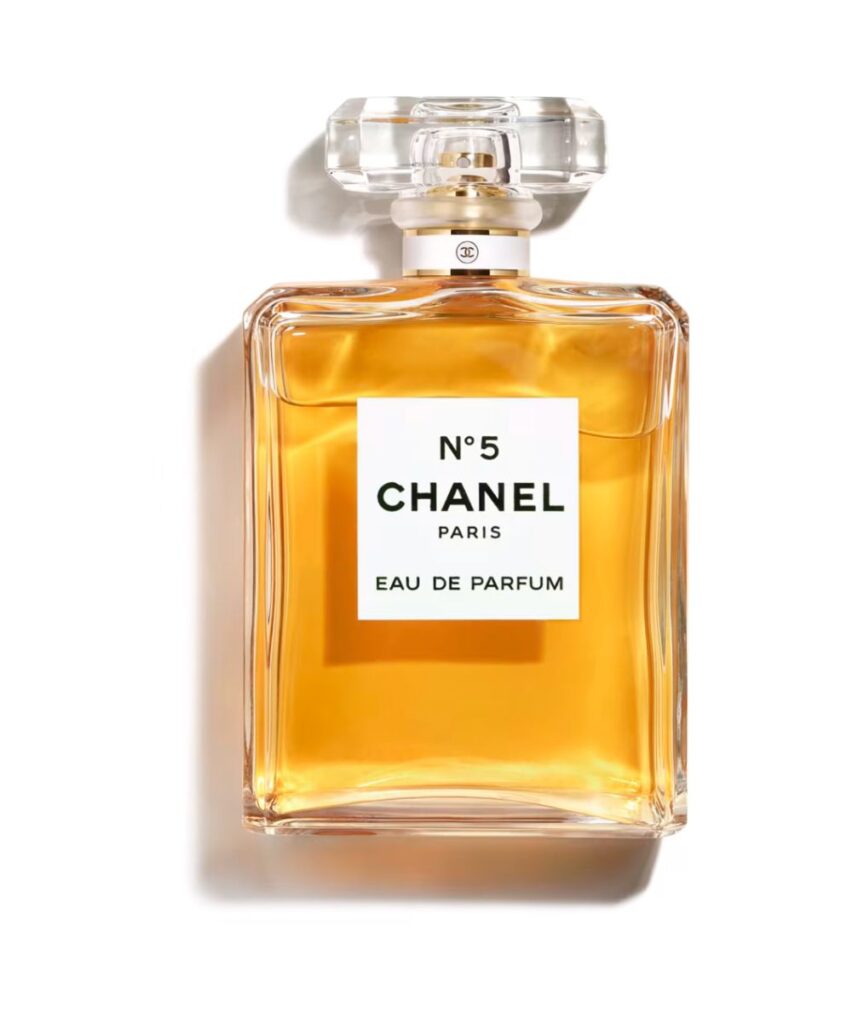
Che Guevara: (taking a drag from his cigar) Liberation, but still so rooted in elegance. Yet, you had this odd connection to England, didn’t you? The Duke of Westminster and all that… A man of the establishment. How does that fit with your rebellious spirit?
Coco Chanel: (laughing lightly) Oh, Bendor—the Duke. (she waves a hand dismissively) He was charming, powerful, and English to his bones. I loved that about him, and England, too. Englishness has a certain elegance, a certain refinement. The tweeds, the understatement—it inspired me. My Chanel bag, for example, has those quilted patterns inspired by English riding jackets. And yet, I never let him—or any man—define me. He wanted to marry me, but I told him, “There have been many Duchesses of Westminster. There is only one Chanel.”
Che Guevara: (grinning) You turned him down? A Duke?
Coco Chanel: (with a wry smile) Of course, darling. I wasn’t going to be anyone’s duchess. I didn’t need a title—I had my name. And that name, Chanel, meant more than any crown.
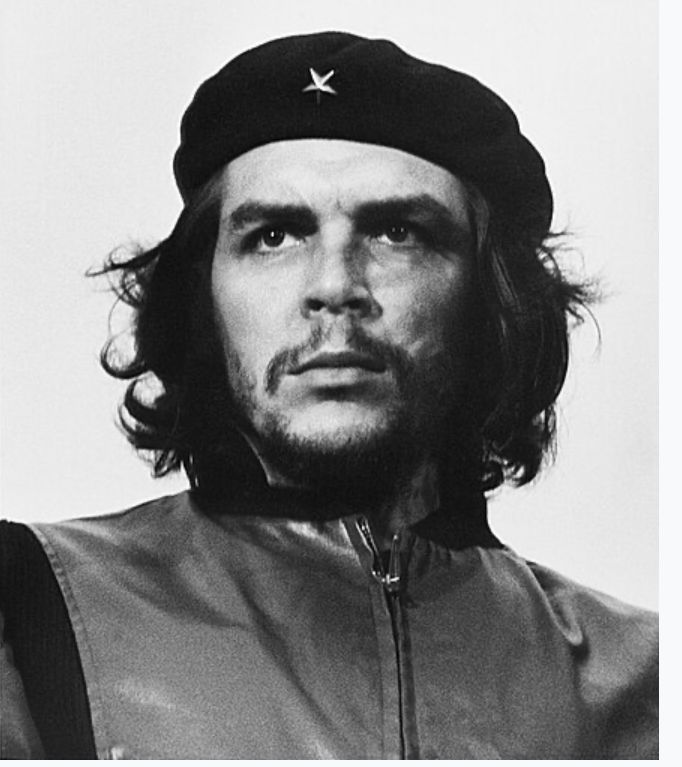
Che Guevara: (pausing, growing more serious) But speaking of names… your own has some shadows, doesn’t it? Your associations during the war, with the Nazis?
Coco Chanel: (her expression hardens slightly, but she remains composed) Ah, the war. People love to speak of things they do not understand. Yes, I was in Paris, yes, I knew people on all sides. But what they forget is that I was a survivor, like everyone else in those times. Paris was occupied, and we did what we had to do.
Che Guevara: (raising an eyebrow) Survival, or self-preservation? Some say you went beyond just surviving.
Coco Chanel: (eyes narrowing slightly) Let them say what they will. They weren’t there. I lost my business during the war—my name was taken from me by the Jews who ran my perfume. I wanted it back. War makes us do things we wouldn’t in peace. You, of all people, should understand that, Che.
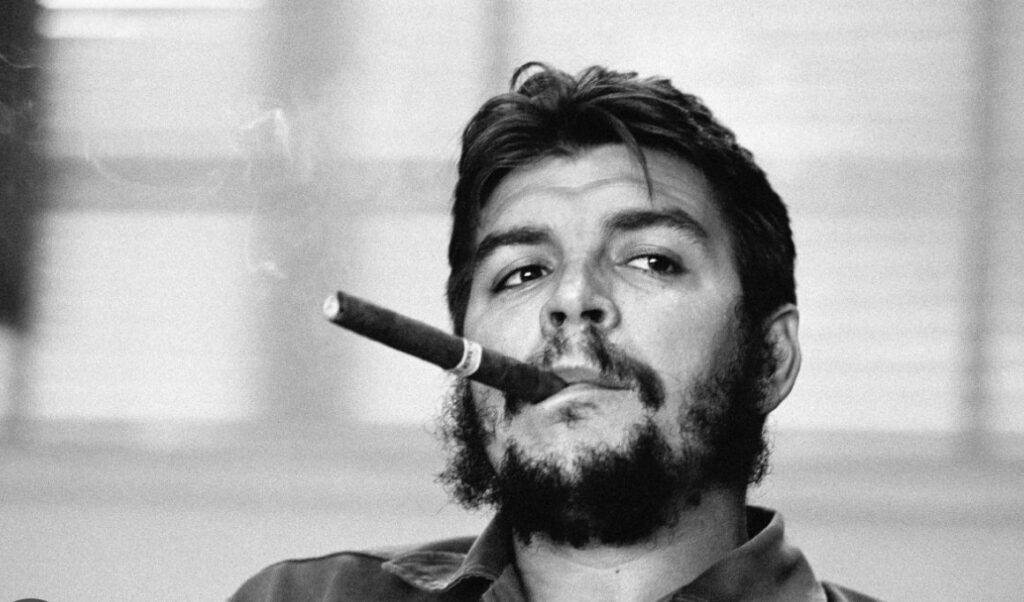
Che Guevara: (nodding slowly) War does change the rules, I’ll give you that. But even so, you walked a fine line.
Coco Chanel: (sighs) We all did. And when the war ended, I rebuilt. I brought back Chanel No. 5, I reclaimed my legacy. People talk, but in the end, history remembers the winners. And I am still here.
Che Guevara: (leaning back) So, you played their game, then rewrote the rules.
Coco Chanel: (smiling coolly) Exactly. I’ve always played by my own rules. Revolution comes in many forms, Che. You know that better than anyone.
Che Guevara: (nodding) True. I just used bullets; you used buttons and perfume. But we’re both fighting for change, in our own ways.
Coco Chanel: (raising her glass) To change, then. To revolutions—whether on the battlefield or the runway.
Che Guevara: (clinking his glass with hers) To revolutions. And to rewriting history on our own terms.
The two sit in reflective silence for a moment, a rare understanding passing between them. Though their worlds were vastly different, they shared a common spirit—the desire to defy expectations, challenge norms, and leave their indelible mark on history.
